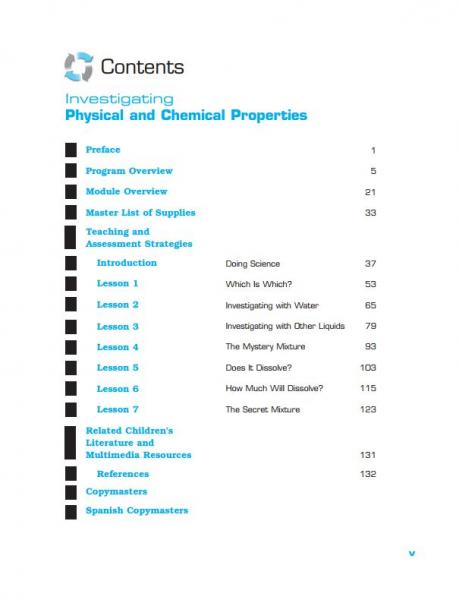PHYSICAL SCIENCE-During this module, students observe the properties of five household substances--alum, salt, cornstarch, baking soda, and talcum powder--and investigate changes in the properties of those substances as they react with water, vinegar, red cabbage juice, and iodine. Because students often think of chemical reactions as "magic," this module helps students build an understanding that chemicals undergo predictable changes that can be controlled. The students use the processes of scientific inquiry, including fair testing (controlling variables), collecting and recording data, using evidence to build explanations, and communicating their results, to investigate changes in the properties of simple household chemicals.
BSCS Science Tracks includes a Teacher's Edition, complete with facsimile pages of the student guide, placed exactly where you need them with the Teaching Strategies. In addition, the Teacher's Edition incorporates the following features, designed to help you organize and manage an activity-based science program within your busy teaching day. The Program Overview explains:
- the general philosophy, goals, and features of the program;
- the relationship of the program to the National Science Education Standards, including the content, teaching, and assessment standards, and Benchmarks for Science Literacy;
- the curriculum framework (scope and sequence)
- the BSCS approach to conceptual development and inquiry using
- an instructional model,
- collaborative learning,
- communication skills, and
- clearly articulated assessment strategies;
- the structure of the student guide and resource book; and
- the structure of the Teacher's Edition.

Biological Sciences Curriculum Studies-10789
BSCS (Biological Sciences Curriculum Studies) Science Learning is a nonprofit organization committed to transforming science education so that all students have an opportunity to learn science in their daily lives and careers. For over 60 years, BSCS Science Learning has filled classrooms around the country with research-driven textbooks, pioneered effective teaching approaches, developed new education leaders, and conducted studies that will continue to alter the course of our science education system. Most importantly, they have championed the cause for meaningful, inquiry-based science learning.
 RETURN TO SEARCH RESULTS
RETURN TO SEARCH RESULTS


